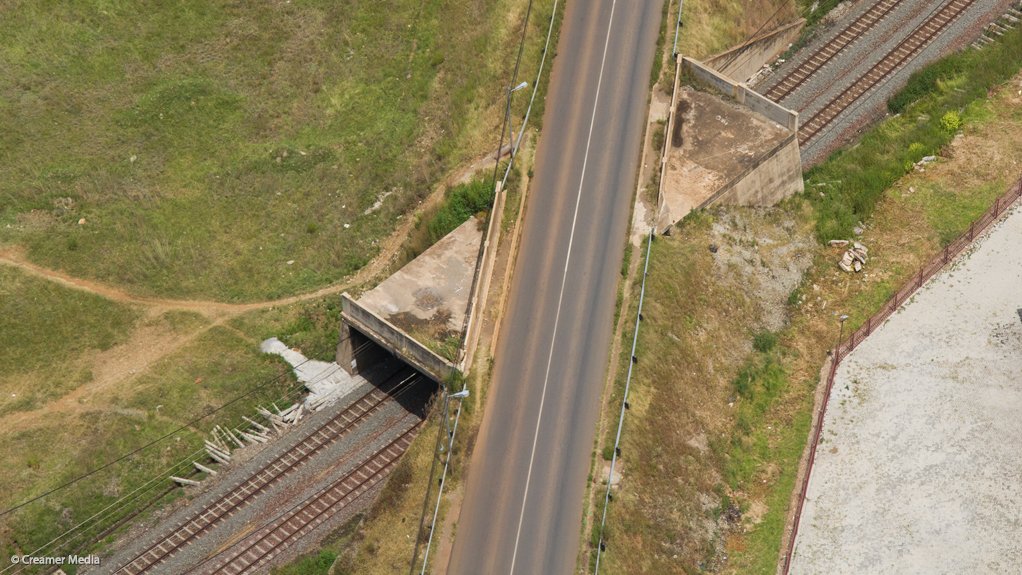Government is seeking to finalise a plan aimed at improving its rail network and move cargo away from its overburdened roads.
While the economy loses a billion rand per day to its logistics crises, government has said an urgent turnaround is needed to improve its 31 000km locomotive network as more and more cargo moves from rail to trucks.
The Department of Transport (DoT) hosted a discussion with industry stakeholders regarding the Freight Road to Rail Migration Plan on Thursday - the latest development in the wake of President Cyril Ramaphosa forming the National Logistics Crisis Committee last year.
Transnet, the South African National Roads Agency (Sanral) and private sector companies were all in attendance.
The Freight Road to Rail Migration Plan is part of government's strategies to improve the country's ongoing logistics crises. In October last year, the government unveiled its Freight Logistics Roadmap to improve the ports and rail networks and encourage private sector participation, and Cabinet has since approved the plan.
The DoT's deputy director-general, Rirhandzu Mashava, said operational deficiencies and underinvestment in railway infrastructure mean that South Africa's railway has been unable to handle increasing cargo movement demand, resulting in expensive transport costs for businesses.
Mashava said infrastructure challenges, including rail and port woes, have meant that South Africa has become "overlooked and overshadowed" by other African countries such as Morocco and Kenyan for exports.
"Kenya has become a competitor of South Africa, when it was not before. Our biggest previously was our neighbours and Morocco and Egypt. This is because the port of Mombasa has outperformed the Durban port," she said during the meeting.
According to Mashava, around a third of long-distance freight has moved from rail to roads within five years (226-million tonnes in 2017/18 to 149.5-million tonnes in 2022/23), with businesses increasingly relying on trucks to transport their cargo nationwide.
Currently, 87% of freight is moved by truck, causing increased congestion and road infrastructure damage.
News24 previously reported that massive congestion had been caused by trucks looking to deliver cargo to the Richards Bay Port after poor rail performance from Transnet Freight Rail's coal corridor.
This led to calls by Transnet to block the trucks as the congestion reached "uncontrollable levels," with the City of Richards Bay also threatening legal action against the port, as it could not cope with truck traffic.
According to the roadmap, various plans to migrate road to rail will be completed within one to five years.
These include: increasing legislation for the road freight sector, improving government regulation the freight road sector with dedicated operational hours for freight movement; improving rail infrastructure through public-private partnerships (PPS); as well as ensuring the translation of skills from road to rail for workers to improve labor capacity in the rail network.
Local manufacturing of locomotive parts and plans to make rail more attractive for businesses through costs and tariff structures will also be implemented.
A step in the right direction
Responses from businesses during the meeting indicated keen interest in the plan. However, they said quick implementation was "critical" to ensure that companies would invest and that such investment "would only be possible in the right conditions".
Speaking to News24, logistics expert in the Department of Industrial Engineering at Stellenbosch University, Jan Havenga, said there needs to be an urgent restructuring of the logistics network, as the economy loses R1-billion per day due to the crisis.
Speaking about the state of rail, Havenga said: "If you have good demand for rail services, you need locomotives, infrastructure, power, signalling, and motivated or trained people. Previous governments only invested in locomotives, not infrastructure, signalling, or training people.
"It's a massive task that the railway needs to do. You lose R1-billion every day and lose even more [revenue] as you use roads more because you cannot sell fresh produce," he added.
He said implementing the plan would be critically important and that a "turnaround" is possible, with rail and port improvements already visible.
EMAIL THIS ARTICLE SAVE THIS ARTICLE
To subscribe email subscriptions@creamermedia.co.za or click here
To advertise email advertising@creamermedia.co.za or click here











